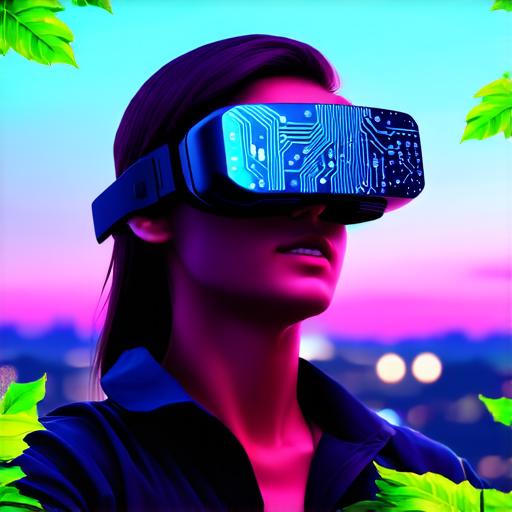Virtual reality (VR) technology has revolutionized the way we interact with digital content, offering endless possibilities for game development, entertainment, education, and more.
Benefits of becoming a certified virtual reality developer:
-
High Demand: With the growing popularity of VR technology, there is a high demand for skilled developers. This means job security and competitive salaries for those who possess the necessary skills. The demand for VR developers has increased dramatically in recent years, with companies such as Facebook, Google, and Samsung investing heavily in VR development.
-
Creative Freedom: VR development offers endless possibilities for creativity, allowing developers to bring their wildest ideas to life in immersive and interactive environments. Developing VR experiences can be incredibly challenging, but the rewards are well worth it. As a VR developer, you’ll have the freedom to explore new technologies and push the boundaries of what is possible.
-
Personal Growth: Learning new technologies and developing your skills can be incredibly rewarding, both personally and professionally. Becoming a VR developer requires a strong commitment to learning and personal growth, as well as the ability to adapt to new technologies quickly. The skills and knowledge required for VR development are constantly evolving, so developers must be willing to learn and grow with the industry.
-
Global Opportunities: With VR technology becoming more accessible around the world, there are plenty of opportunities for developers to work on exciting projects with clients from all corners of the globe. As a VR developer, you’ll have the opportunity to work with some of the most innovative and forward-thinking companies in the world.
-
Innovation: As a VR developer, you’ll have the opportunity to be at the forefront of cutting-edge technology and contribute to the development of new and innovative applications that will shape the future of virtual reality. You’ll have the chance to work on projects that push the limits of what is possible with VR technology, from immersive gaming experiences to advanced training simulations for military and healthcare professionals.

Skills and qualifications required to become a certified virtual reality developer:
-
Programming Skills: A solid understanding of programming concepts such as data structures, algorithms, and object-oriented design is essential for VR development. Popular programming languages for VR include C++, C, and JavaScript. Developers must have a strong foundation in programming to be able to create complex VR experiences that are optimized for performance and user experience.
-
3D Design Skills: VR development requires a strong background in 3D design, including modeling, texturing, and animation. Knowledge of tools such as Unity, Unreal Engine, or Blender is essential. Developers must have a deep understanding of 3D modeling and design principles to be able to create immersive and interactive VR environments that are engaging and intuitive for users.
-
User Experience (UX) Design: VR experiences must be intuitive and engaging for users. Developers need to have a strong understanding of UX design principles and how to apply them in virtual environments. They must be able to design interfaces that are easy to use and navigate, while also providing users with the information and tools they need to accomplish their tasks.
-
Game Development Skills: VR games require a unique set of skills, including level design, AI programming, and network programming. Experience with game engines such as Unity or Unreal Engine is highly valuable. Developers must have a strong foundation in game development principles to be able to create engaging and immersive VR games that are fun to play and easy to learn.
-
Hardware and Software Knowledge: Developers need to have a good understanding of the hardware and software requirements for VR development, including the specifications of different VR headsets and controllers. They must be able to optimize their code for different platforms and devices to ensure that their VR experiences are smooth and seamless.
-
Certification: A certification in virtual reality development can demonstrate your expertise and make you more attractive to potential employers. Popular certifications include Oculus Certified Developer (OCD) and Unity Certified Developer (UCD). While certifications are not a requirement for VR development, they can help set you apart from other candidates and give you an edge in the job market.
Getting started as a certified virtual reality developer:
-
Learn the basics of programming: Before diving into VR development, it’s important to have a solid foundation in programming concepts. Start by learning a programming language such as C++

